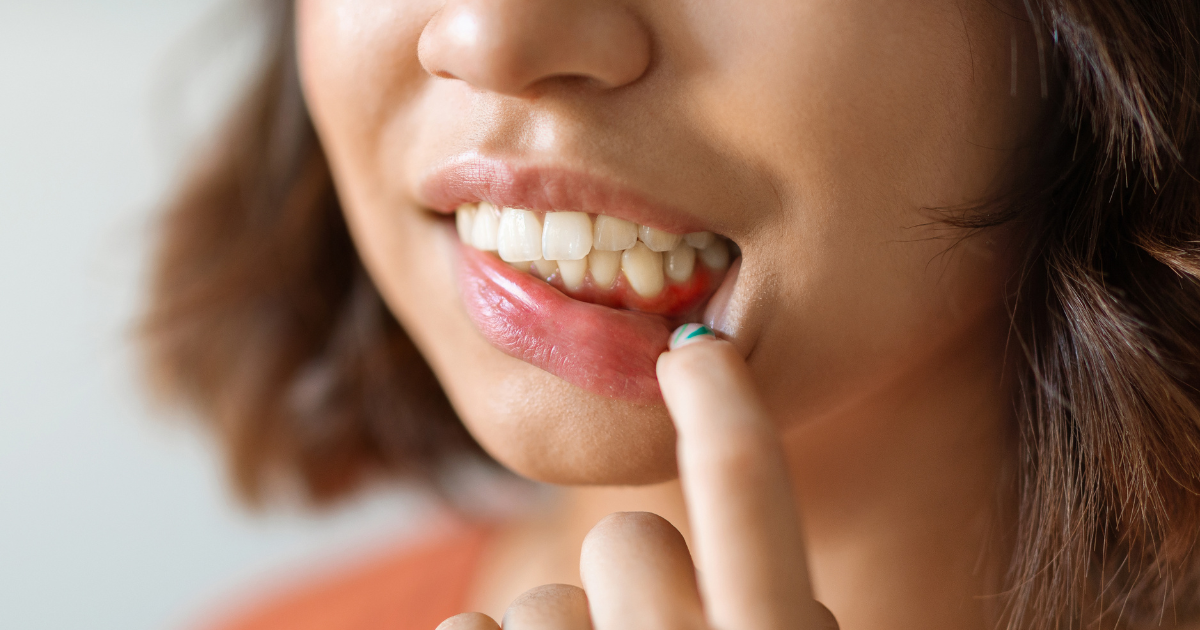
Stress and grinding are usually mentioned as separate issues, but they actually have a direct link with your oral health. Often, you may be unaware that these everyday habits can harm your gums, teeth, and overall dental health. Understanding how stress and grinding affect your gums can help you make informed decisions about your dental care.
How Stress Affects Your Gums
Stress is not only a mental issue; it can also have a significant impact on one’s physical well-being, including the health of the gums. When one is stressed, the body produces hormones that trigger a series of bodily responses. Among these is a weakening of the immune system, which makes it difficult for your body to repel bacteria, leading to gum infections. This can further lead to gum disease, a prevalent condition that mostly goes unnoticed in its early stages.
- Increased Inflammation: Stress leads to the increased production of cortisol, a hormone that may result in increased inflammation. This makes your gums more susceptible to irritation and infection. If you already have gum disease, it may worsen with stress.
- Reduced blood flow: Stress can lead to blood vessel constriction in the gums, resulting in reduced blood flow and oxygen delivery to the tissues. Without proper circulation, your gums become less capable of healing and more prone to swelling and pain.
- Bruxism and Jaw Tension: The most common symptom of stress is teeth grinding. Grinding can put stress on your jaw and gums, leading to discomfort and potential long-term damage. It’s essential to address this problem to prevent further damage.
Grinding Teeth: A Direct Threat to Gum Health
Grinding your teeth, whether during the day or night, is a common way the body responds to stress. The pressure applied to your teeth during grinding can cause your gums to recede, exposing the sensitive root surface. In the long term, this can lead to more serious dental problems, including tooth sensitivity, an increased risk of cavities, and even tooth loss.
- Gum Recession: The most serious consequence of grinding on your gums is recession. Grinding puts extra pressure on the teeth; this extra force causes the gum tissues to move away from the tooth. This may cause the roots of the tooth to be exposed, thus resulting in discomfort or sensitivity. If left unattended, this can lead to long-term gum disease and damage.
- TMJ Disorder: Temporomandibular Joint Disorder is related to the jaw joint and is a common complaint among many who grind their teeth. TMJ results in pain, swelling, and tenderness around the area of the jaw and gum, which interferes with comfort while chewing and speaking. If left unaddressed, this condition may deteriorate with time and further increase the chances of gum and tooth damage.
Take Action to Protect Your Gums
Fortunately, it is relatively easy to address dental problems caused by stress, including grinding. You can minimize the risk of gum disease and dental damage if the underlying cause of the problem is addressed. Here’s what you can do:
- Manage Stress: Although you may not be able to avoid stress, managing it can make a significant difference in your dental health. Take some time for stress-reducing activities, such as yoga, meditation, or simple relaxation, each day.
- Wear a mouthguard: If you grind your teeth during sleep, wearing a mouthguard can protect your gums and teeth from the pressure exerted. These custom-fitted guards absorb the force of grinding, thus limiting the damage to your gums.
- Regular dental check-ups: Be sure to visit your dentist regularly. A dentist can detect signs of gum disease, recession, and tooth damage at an early stage, which means proper treatment before the condition becomes irreversible.
- Practice good oral hygiene: Regular brushing and flossing can keep gums healthy. If the stress is causing problems with your gums, then having clean and plaque-free gums will reduce inflammation and help improve the health of your gums. Stress and grinding can significantly impact your gum health, leading to issues such as gum disease and tooth damage. Stress management, mouthguards, and good oral hygiene all play a crucial role in protecting the integrity of your gums against these factors.
Be sure to continue being proactive, so that the gums can remain healthy even when you are under stress. If you’re experiencing gum pain, sensitive teeth, or signs of gum disease, don’t wait to make an appointment with Monarch Dental Care. We’re here to help you manage stress-induced oral health issues and maintain healthy gums.



